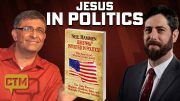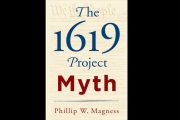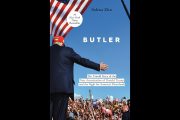One of the striking realities of post-Soviet thought in Russia is that in the years which have passed since the transition from Mikhail Gorbachev to Boris Yeltsin, very few Russian thinkers have had a measurable impact outside of their immediate political environment. Under the Soviet regime, publishing houses such as Progress Publishers guaranteed that an English-speaking audience had inexpensive access to a wide variety of Marxist-Leninist literature. And for decades, samizdat (that is, self-published) works of literature, history, and political thought circulated throughout the Soviet Union — often with great peril both to authors and readers — before they then traveled into the West, where publishers were often eager to produce English editions. However, the apparent end of the Cold War also ended an era in which Russian writers commanded a measure of popular interest in the West.
From a literary perspective, at a popular level, it was almost as if Russia had ceased to exist. A few works by 20th century Russia’s greatest man of letters, Alexandr Solzhenitsyn, have been published in recent years. (You may read the reviewer’s assessment of Solzhenitsyn’s Apricot Jam and Other Stories here.) However, aside from the lunatic fringe (e.g., Vladimir Zhirinovsky’s My Struggle), few Russian authors have managed to penetrate popular Western thought since the days of perestroika.
However, two events in recent weeks — the “disappearance” of Vladimir Putin and the new round of U.S. sanctions which include sanctioning Eurasianist ideologist Aleksandr Dugin — may help to renew popular interest in what makes modern Russia tick.
Putin’s unexplained absence from the world stage may serve to highlight the degree to which a man who has crafted an image of himself as a bear-wrestling, KGB-strongman could ultimately prove to be a replaceable face for the new Eurasian Union. Soviet rulers from Lenin to Gorbachev often sought to present themselves as both “the Thinker” and “the Leader,” but Putin seems more of a Kalashnikov-wielding matryoshka doll — with no firm confidence as to what one may find underneath all the various layers, and no manifesto upon which one may assess his thoughts.
Dugin, however, clearly desires to be seen in the role of “the Thinker,” and a handful of his dozens of Russian-language books have now been translated into English. As noted in an earlier review of Dugin’s The Fourth Political Theory — the first of his books to be translated into English — Dugin understands his ideology to have a much broader application than just within the borders of Russia. Rather, his “fourth political theory” is an attempt to meld the “best parts” of Fascism, Communism, and Liberalism to form the basis of a new ideology for Eurasia, and the world beyond.
In Putin vs Putin: Vladimir Putin Viewed from the Right, Dugin offers his assessment of the Russian leader, albeit after leading the reader on a long and twisting path. Dugin’s mystical, so-called “traditionalist” outlook often surfaces in his writings, but the many and varied ways in which Putin is presented in the book led this reader to finally assess this work as an fascinating blend of exoteric and esoteric writing. Beneath sheaths of praise for Putin, one ultimately encounters Dugin’s so-called “criticism from above.” Having declared that “Putin, in spite of all societal expectations and the smoke and mirrors, ultimately has no long-term messianic ideology,” Dugin must still operate within the rigidly hierarchical framework which he insists is necessary for Russia. Thus, he declares:
Today we are left with just one method: criticism of Putin from above. Criticism of his realism, his pragmatism, and the insignificance and formality of his actions. This criticism doesn’t come from the right, or the left, or below. How can we comprehend this? Why from above? As both the formal and informal pinnacle of the power pyramid, how could anything exist above Putin? Inherent in the very notion of sovereignty is that above him stands no other institution of authority. That is the point. So what exists above Putin, if everything (in Russia) exists below or beside him?
The idea stands above.
And what, pray tell, is “the idea”? In Dugin’s words: “For us, the reigning idea is the Russian Idea, the idea of Great Russia, emerging from centuries of history and careening towards full and bright fulfillment in the future.” It is to this “Russian Idea” that Dugin holds Putin accountable, and insists that Putin measure up to Dugin’s understanding of that idea: “Therefore he [Putin] conducts test of the Russian Idea and, in short, comes out on its side. In this sense, he is the only political figure in contemporary Russia endowed with a substantial amount of trust; in this sense, he is a Russian in the Kremlin.”
If the notion of the “idea” was limited to such vague nationalistic sentimentalities, one might wonder what Dugin’s concerns for Putin’s answerability to it might be. But the “Russian Idea” is actually Dugin’s “Eurasian Idea.” In Dugin’s words: “Today, Putin and his circle understand that Russia needs big ideas and big projects. The Eurasian Economic Union and Eurasian integration is a large and very serious project…. When Putin talks about the Eurasian empire from Lisbon to Vladivostok, this is no accident.” For Dugin, the “Russian Idea” is to strike while the West appears weak, and it is Dugin’s fear that Putin will not be able to live up to the standard which is demanded of “the Leader”:
Even Europe is collapsing, as we see with Greece and Cyprus. It’s obvious that the West’s universal global project has failed. From this situation arises a critical question: can we Russians use this window of opportunity, when the West’s unipolar front has stalled? Putin, completely logically, offers a single solution: Eurasian integration, that is, the creation of a new civilization, the purpose of which would be to strategically adapt the landscape to a new model, which includes a new pole in a multipolar world. Putin does this skillfully and pragmatically, using the available resources. Maybe everything will go smoothly. I am not certain of the idea’s future success or failure as I — the author of the concept of the Eurasian Economic Union and Eurasian integration — as an author and as a political scientist, philosopher, and metaphysician, I see that Putin lacks historical temperament and scale in the execution of this project.
To this reader, Dugin seems obsessed with a need for the world to understand that “the Leader” is taking his cue from, and must ultimately be answerable (ideologically-speaking) to “the Teacher.” Thus Dugin rails near the beginning of Putin vs Putin:
One can say that I am an ontological philosopher. All the other elements — sociology, history of religion, geopolitics, political science, cultural studies, literary studies, and so forth, stem from ontology.
For many strenuous years my hard-won ideas, which came at enormous cost and effort, were pilfered at every turn by hordes of intellectual jackals and mainstream plagiarists. These years brought me nothing but a barrage of criticism, suppression, abuse, and filth. I did not even manage to achieve things which mediocre social second-raters are usually able to achieve through far less effort.
Now, Dugin insists, Putin is running out of time: “All that remains is for Putin to become the things that his sworn enemies already see him as — which is also the thing that his friends of today, the patriots and Eurasianists, want to see him as.” Thus, at the conclusion of Putin vs Putin, Dugin holds Putin responsible for wasting 12 years since he first came to power:
In other words, 12 years were stolen from the country, from history, politics, Eurasianism, and from me personally. It’s impossible to just forget that. The former trust has been compromised. The emotions are gone. To some extent or other, the patriotic majority feels the same. It may not say so, and may not be able to express it, but it feels it.
That’s why it is possible today to say without irritation or hopefulness: “Vladimir Vladimirovich, this is your last chance.”
If Dugin’s central thesis in Putin vs Putin has any basis in reality — and the events of the past year give any observer reason to fear that Dugin has a rather clear vision for Putin’s possible role in the formation of a Eurasian Union to take the place of the Soviet Union — the Putin who will be known to future historians may be significantly different from the shallow strongman many in the West currently hope that he is.
Aleksandr Dugin, Putin vs Putin: Vladimir Putin Viewed from the Right, (Arktos, 2014) 316 pages. paperback. $29.00.




